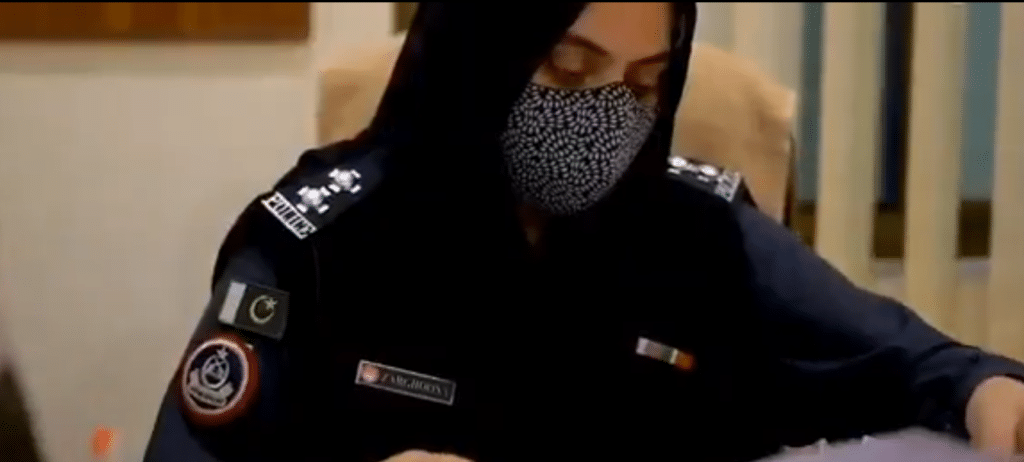QUETTA: Baloch Yakjehti Committee (BYC), led by Mahrang Baloch, faces accusations of targeting and maligning progressive Baloch and Pashtun women who are contributing positively to the region’s development.
One of the recent fashpoints involves the defamation campaign against Zarghoona Tareen, a pioneering Pashtun woman who holds the distinction of being the first female Station House Officer (SHO) from Balochistan, and the daughter of a martyred officer.
In this sense, there are several sources, baseless allegations of violence and misconduct have been directed at her by individuals linked to the BYC.
These accusations, critics argue, appear to be a part of a larger pattern of harassment against women who strive to make a difference in Balochistan.
Also Read: Balochistan govt to launch bus service for women
Furthermore, observers note that this specific group, estimated to represent only a small fraction of the region’s population, has repeatedly sought to monopolize the narrative around women’s rights and representation in Balochistan.
اس وقت ایک مخصوص ٹولہ بلوچستان کی پشتون بیٹی، پہلی خاتون ایس ایچ او اور شہید کی بیٹی زرغونہ ترین پر ماہرنگ اور اُس کے ساتھیوں کے مبینہ تشدد کا بے بنیاد الزام لگا کر ایک پشتون بہن کی کردار کشی کر رہا ہے۔
اس مخصوص دو فیصد ٹولے کے نزدیک صرف اُن کی ماہرنگ ہی بلوچستان کی بیٹی ہے،… pic.twitter.com/HGa1pe0d3D
— Dukhtar-E-Balochistan🇵🇰 (@Dukhtar_B) April 25, 2025
In addition, they are claiming to be the sole voice of Baloch women, they have engaged in campaigns to discredit others, including both Baloch and Pashtun women, who do not align with their ideology or methods.
Moreover, analysts and human rights activists have raised serious concerns about the approach adopted by this faction. In this regard, reports suggest that public shaming, character assassination, and intimidation have become common tools for suppressing dissent and silencing women who are pursuing independent and constructive paths in public service, law enforcement, education, and civil society.
In such a scenario, the cases of Zarghoona Tareen and Meena Majeed, another prominent Baloch woman, highlight this troubling trend.
Meanwhile, the broader public in Balochistan, particularly the huge majority of women who continue to work quietly and diligently for the betterment of their communities, has expressed concern over this toxic behavior.
Many feel that the actions of a small, radicalized segment are harming the reputation of the very cause they claim to represent. They stress that respect, dignity, and support should be extended to all women of Balochistan, regardless of political affiliations or backgrounds.
However, there is an urgent need for political and civil society stakeholders to promote inclusive dialogue and protect the dignity of all women working for peace and progress in the province. The focus, many argue, should shift toward collective development, mutual respect, and unity, rather than division, vilification, and exclusion.





